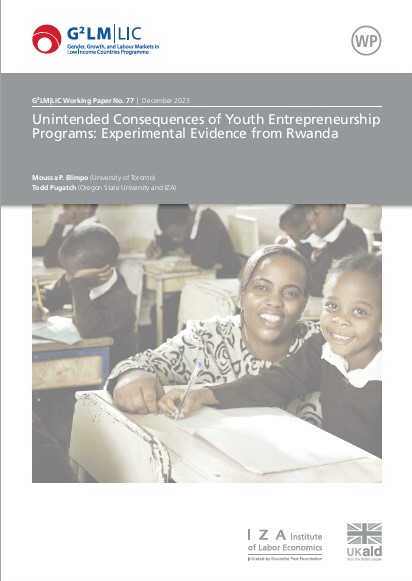The persistently high employment share of the informal sector makes entrepreneurship a necessity for youth in many developing countries. We exploit exogenous variation in the implementation of Rwanda’s entrepreneurship education reform in secondary schools to evaluate its effect on student economic outcomes up to three years after graduation. Using a randomized controlled trial, we evaluated a three-year intensive training for entrepreneurship teachers, finding pedagogical changes as intended and increased entrepreneurial activity among students. In this paper, we tracked students following graduation and found that increased entrepreneurship persisted one year later, in 2019. Students from treated schools were six percentage points more likely to be entrepreneurs, an increase of 19 percent over the control mean. However, gains in entrepreneurship faded after three years, in 2021. Employment was six percentage points lower in the treatment group. By some measures, income and profits were lower in the treatment group, with no robust differences in these outcomes overall. Lower incomes and profits were concentrated among marginal students induced into entrepreneurship by the program. Youth entrepreneurship programs may therefore steer some participants away from their comparative advantage. Nonetheless, the program increased university enrollment, suggesting the potential for higher long run returns.
